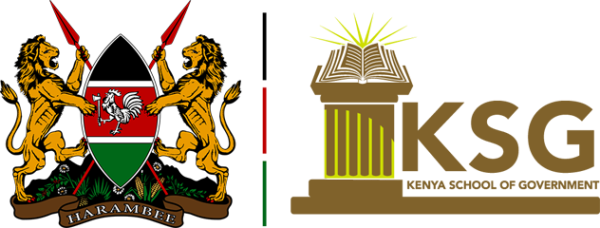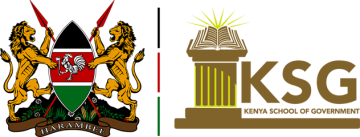Economic Governance School
September 10, 2025 2025-09-11 7:09Economic Governance School
Economic Governance School for Members of the Executive
A Three-Module Programme: Ghana, South Africa, Kenya June – October 2025
Background
Unprecedented disruptions continue to challenge leadership and governance systems in social, economic, political, and environmental spheres. Ongoing pressures have tested the structures and modalities of multilateral governance, regionalism, and national development frameworks. The new burdens of global power contestations and deglobalisation attempts, climate and energy crises, and digital transformation – among others – can render obsolete traditional economic policy instruments. Equally, low economic growth, high unemployment rates, credit rating downgrades, and recurring lapses in ethical leadership have a frustrating impact on government efforts to overcome social and economic imbalances. Building the economy will require governments to have the necessary capabilities and decisive leadership on policy consistency and governance approaches. Overall, the convergences of external economic factors and domestic institutional challenges highlight the need for initiatives to enhance economic governance capabilities, thereby realising sustainable development goals and continental aspirations.
Programme purpose and value
The 2025 Economic Governance School (EGS) Programme is backed up by Memoranda of Understanding between National School of Government (NSG) South Africa and Kenya School of Government (KSG) and National School of Government and Ghana Institute of Management and Public Administration (GIMPA). Module 3 of the Economic Governance School Programme themed “Action Steps for Shared Economic Futures”, will be held at Lower Kabete from October 27-31, 2025
The EGS Programme serves as a continental platform for leadership capacity building, equipping senior officials at policy making level with knowledge and tools to drive sustainable economic governance. The programme reflects a shared vision between KSG, GIMPA, and NSG to strengthen African institutions and foster economic transformation.
Cumulatively, it is anticipated that the Economic Governance School will also serve to contribute towards the following capacity development objectives:
- To develop political-level executives with shared perspectives on the policy and implementation imperatives that must be addressed to overcome challenges.
- To strengthen strategic capabilities at the top level of government and understand the interconnections across different layers and agencies of government, as well as their relationship to the government’s strategic goals.
- To enhance inter-governmental coordination through reflective engagements amongst senior public office bearers from all spheres of government and sectors of service.
- To facilitate the evolution of a shared ethos and related approaches towards utilising financial resources and state authority for positive action and prosperity.
- To provide a safe space in an academic context for intense policy discussions and to imaginatively explore possibilities for the future.
Capacity building partnerships
To optimise the range and quality of capacity development initiatives for elected and appointed senior public officials, the NSG enters into strategic partnerships with various institutions locally and internationally. Significantly, the pursuit of common continental interests and bilateral priories has resulted in the formalisation of joint programmes for capacity building, knowledge and resource sharing, and exposure to good practices and innovation between countries. The 2025 Economic Governance School programme is backed up by Memoranda of Understanding between South Africa and Kenya, and South Africa and Ghana. The respective education, training and development institutions are collaborators in the refinement and implementation of the iterations of the programme:
- National School of Government (NSG),
- Ghana Institute of Management and Public Administration (GIMPA), and
- Kenya School of Government (KSG).
Additionally, the programme is supported by financial sponsorship and technical assistance to enable cost-effective participation by the three country delegations.
Programme beneficiaries
Senior public officials, both elected and appointed, do not simply facilitate the production of regulations and legislation. They continually strive to enhance the quality of their work by expanding their capabilities and learning from their experiences. The programme provides a shared learning and reflection platform for Members of the Executive with equivalent roles as: Cabinet Secretaries, Ministers and Deputy Ministers, Principal Secretaries and senior Government officials at policy making levels, Premiers and Members of the Executive Council (MECs), and Mayors and Members of the Municipal Committees (MMCs).
The premise of the participation of senior public office bearers in this programme is their understanding of the global, regional, and domestic economic challenges (articulated internationally and domestically through strategies and policies). In turn, the agency and capability of Members of the Executive will relevantly impact the communities they serve.
Programme design and structure
Internationally and locally, executive education programmes are typically offered as short, high-level, and intensive learning opportunities for senior individuals. This Economic Governance School is designed in a similar fashion: it is a 4-day residential programme that immerses participants in a rich learning environment. Blended facilitation methodologies will include a combination of the following features:
- An accessible eLearning portal for a variety of resources.
- Local and international case studies and related analytical tools.
- Simulated projects on future thinking concepts and strategies for implementation.
- Visits to local institutions, e.g. cultural or economic development institutions.
- Settings and presentations that integrate cultural perspectives and indigenous wisdom, while also considering ways of improving government-business relationships.
- Peer learning interactions and a collaborative action learning/ group project.
For the three-module format, provision is made for a maximum of 15 participants from each country to attend each module. This continuity is essential for deepening insights and comparative analysis of region and national exemplars of governance innovations. Specialist input makes will provide leading perspectives on specific topics, followed by case studies, panel discussions, and participant-led working groups. The major themes of the programme will unfold as follows:
- Module 1 in Ghana, June 2025: Policy, practice and integration for inclusive growth
- Module 2 in South Africa, August 2025: Sustainable structural transformation
- Module 3 in Kenya, October 2025: Action steps for shared economic futures
Sustainability, climate change, just energy transition and artificial intelligence are sub-themes that will cut across the three modules.
Faculty and input makers
Facilitation of the Economic Governance School involves bringing in high level, relevant local and international experts to stimulate, challenge and inform the discussion among leaders. Continental speakers and co-facilitators will include academics; long serving and retired senior public servants; and specialists from private sector, state owned entities and civil society. To the extent possible, there will be a balance of diversity by sphere of government, sector, age and gender. Also, faculty will be expanded or rotated according to the required expertise at different iterations of the programme.
Assessments and certification
The Economic Governance School is a non-credit bearing short learning programme. The programme includes specific formative activities under each theme and a comprehensive action learning project. The group project presentations are hosted on the last day of the programme, followed by combined commentary from a specialist panel. After meeting all programme requirements, a co-branded Certificate of Successful Completion.
Cost and enrolment
Benefiting from the sponsorship, the tuition fee will be waived, and participants will only bear the cost of travel to each country. Enrolments will be managed by the lead institution for the respective module, supported by partner coordinators.
National School of Government (NSG)
Mr Ndivhoniswani Nematsweani
Cell:+27 79 841 9761
Email: ndivhoniswani.nematswerani@thensg.gov.za
Ghana Institute of Public Management and Administration (GIMPA)
Ms Abigail Sackitey
Cell: +233 24 411 8073
Email: abykorkor@gimpa.edu.gh
Kenya School of Government (KSG)
Ms. Elizabeth Ngava
Cell: +254 722 553 200
Email: elizabeth.ngava@ksg.ac.ke


